Coronavirus antibody tests are available around the country. Here's why they may provide a false sense of security.
This news story was updated on May 8, 2020 with new information
Medical experts have some advice for Americans thinking about getting coronavirus antibody tests: Don't – at least not until the questionable ones have been weeded out and scientists know whether people who survived COVID-19 are immune from the virus.
Until then, some scientists say, manufacturers should stop advertising the antibody tests, for as little as $25, that many Americans use to decide if they can safely stop social distancing or return to work.
Nikole Carlson Hartzell said she felt invincible after an antibody test for COVID-19 at an urgent care center in Brighton, Michigan, reported what she said was "no active infection, no prior infection and no evidence of immunity."
"Knowing I wasn't infected, I immediately visited my niece and hugged my sister," said Hartzell, who reasoned she could not transmit the coronavirus at that moment. "The novelty of it quickly wore off, as once I was home and saw my husband, I was no longer superhuman and could not guarantee anything anymore."

Experts say people should be careful about how they interpret and act on results of COVID-19 antibody tests that haven't been validated by government regulators.
Antibody tests "may give people a false sense of security,” said Kamran Kadkhoda, medical director of immunopathology at the Cleveland Clinic in Ohio. Test manufacturers "should stop offering them until we know more."
During the past few months, many people with symptoms of COVID-19 were told to stay home and not use up the scarce diagnostic tests that could confirm they were infected with the coronavirus. There was little doctors could do, whether someone had a diagnosis or not.
Now that another type of exam – antibody tests – is more readily available, thousands are lining up at urgent care clinics, workplaces or even drive-thru sites. Some hope at a minimum to satisfy their curiosity about that fever or dry cough months ago.
In late January, Bob Nadeau got a case of the flu like he’d never had before. His chest was heavy, like there was a weight on it. He couldn’t taste or smell normally.
“Coffee tasted terrible, and I love coffee in the morning,” said the Naples, Florida, resident. “And I love to have a beer, you know, at beer-thirty. Beer tasted terrible.”
A flu test came up negative. He hopes to confirm his suspicions with a COVID-19 antibody test.
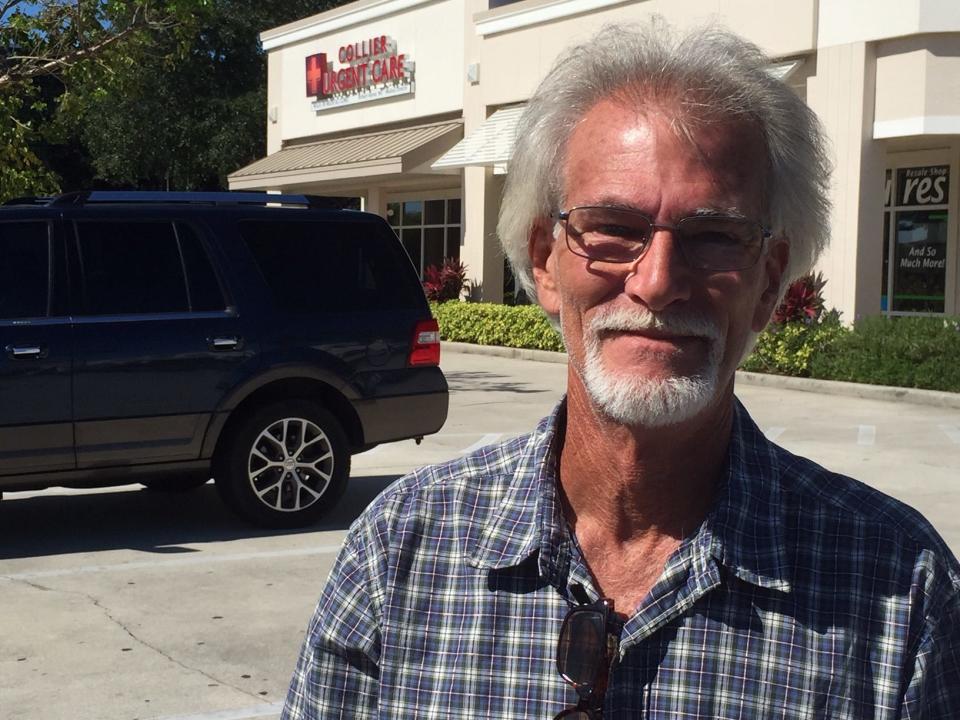
Antibody tests that have been properly constructed and validated are useful. They can identify blood donors for coronavirus research and help scientists determine how widely the virus has spread in a particular community or population, according to the Infectious Disease Society of America.
They could even aid the global quest for a vaccine by helping researchers understand which antibodies, if any, provide immunity, the organization said.
However, manufacturers have flooded the U.S. market with antibody tests that vary widely in accuracy. Even if the tests are accurate, scientists don't know how long antibodies will last or what level someone needs to be immune.
"Until we fully understand the performance of these assays we won't know the best way to use them," said Dr. Angela Caliendo, the executive vice chair of the department of medicine at Brown University's Alpert Medical School.
"There's tremendous pressure to offer it, and then you don't know how to interpret it," she added during a May 8 briefing by the Infectious Diseases Society of America.
The U.S. Food and Drug Administration made the rush to market possible by allowing COVID-19 antibody test manufacturers to self-validate their products without first submitting the data to regulators.
Amid criticism of that policy, the FDA changed course Monday. Citing unnamed “unscrupulous actors” marketing fraudulent tests, the agency said manufacturers must meet new accuracy standards and submit proof of testing quality.
At that point, the FDA had given emergency use approval to 12 out of more than 200 antibody test manufacturers. The FDA is working with other government offices to assess the performance of antibody tests. Results have not been made public.
Partly filling the information void, a few independent and government organizations have analyzed some of the COVID-19 antibody tests. One group, partly funded by the Chan Zuckerberg Biohub, reported the tests did not always work as advertised. External data posted by the Geneva-based Foundation for Innovative New Diagnostics showed that some tests performed poorly.
The pitch for antibody tests: 'Let's put America back to work'
Motivations behind antibody testing vary.
"Let's put America back to work," says the website for one test manufacturer, Abacus Pharma International. The website of Abbott Labs, a U.S. testing giant, says its antibody test "could be a critical next step in battling this virus."
HealthLabs.com, a lab that uses tests from Quest Diagnostics, LabCorp and other laboratories, offers COVID-19 antibody tests at 4,500 sites nationwide. Fiyyaz Pirani, the company’s founder and CEO, said the test primarily satisfies people's curiosity about whether they have been infected.
Quest Diagnostics, another lab testing giant, offers COVID-19 antibody tests online. To qualify, a person must be symptom-free for at least 10 days. A USA TODAY reporter who took the test got the result – negative – within a day.
Hartzell received her test results faster, and for just $25.
She was partly motivated by curiosity. For 12 days in January, she had been immobilized with a fever, sore throat and chills. Tests for flu and strep throat came back negative.
Since then, she'd wondered: Did she have COVID-19? If she did and had recovered, she figured, she could continue to help her sister and 16-month-old niece without the risk of getting them sick.
Hartzell drove an hour to an urgent care antibody testing site outside Detroit. She almost missed out because the clinic was booked solid, but some people didn't show up.
"I waited about 25 minutes in my car, came inside to a sparse waiting room with only two available chairs and was soon taken to a room," said Hartzell, who documented the moment with a selfie. "The test was very simple, a prick of the finger, and a few squeezes because quite a few drops of blood are required."
Roughly seven minutes later, she got the negative results and went straight to see her sister and 16-month-old niece.
Hartzell said she normally would have looked for more information about the antibody test and its manufacturer. But not this time.
“Had any results come back positive, I'd have checked into it more," she said. "And had the test cost more than $25, I'd have thought more about it."
When told by a USA TODAY reporter that the manufacturer of her test had not received FDA emergency use authorization, Hartzell said she was “bummed.”
She's back to self-quarantining for two weeks before visiting her sister and niece.
Antibody tests are available, but what do they tell people?
The test Hartzell got isn't the one many experts say is needed most.
Though tests to detect an active coronavirus infection are more available than they were a short time ago, it still can be difficult for Americans to get one. Governors and health leaders complain about shortages, particularly the swabs and chemical reagents required to run the tests.
"We desperately need highly specific and sensitive tests" that confirm whether patients with COVID-19 symptoms have the coronavirus, said Michael Osterholm, director of the Center for Infectious Disease Research and Policy at the University of Minnesota. "That's the test we really need. But that's the test we don't have enough reagents for."
Antibody tests, also called serology tests, detect whether someone has developed antibodies to fight off SARS-CoV-2, the coronavirus behind the COVID-19 disease. Those antibodies generally can’t be detected until two weeks after infection. Antibody tests use blood samples, unlike the molecular tests that typically require long swabs to collect samples of mucus from the nose and throat.
Then there are questions about the accuracy of tests.
Like some other medical tests, the quality of a coronavirus antibody test is measured in two ways. Sensitivity is the test's ability to detect antibodies for the disease. An error in sensitivity could produce a false negative, indicating the absence of these antibodies when they exist.
Specificity represents a test's ability to identify people who were not infected with the coronavirus and did not produce antibodies to the disease. An error in specificity could produce a false positive, indicating the presence of antibodies that aren't actually there.
A false positive could result from a test that detects antibodies to other coronaviruses in a blood sample, not the one that causes COVID-19.
A test with a specificity rate of 95% might seem great, but it's not, said Dr. Geoffrey Baird, the interim chair of laboratory medicine at the University of Washington School of Medicine in Seattle.
Consider a situation in which 3% of people are infected. If a test with a 95% specificity were used to test 1,000 people, it would identify the 30 people who had been infected and developed antibodies, Baird said, but it would also identify roughly 50 false positives.
False positives are of particular concern because they could lead people to believe they are immune to the coronavirus when they don't actually have antibodies for it.
Chai Bunyagidj is the president and chief executive officer of Alfa Scientific Design, a San Diego company that manufactured the antibody test used to check Hartzell. He said his test is among the few developed and manufactured in the USA.
Lab studies show the test has a 97.8% sensitivity and 94.7% specificity, Bunyagidj said.
After two months in lockdown, some people might hope they had COVID-19 and didn't realize it at the time, and immunity might free them from being so careful.
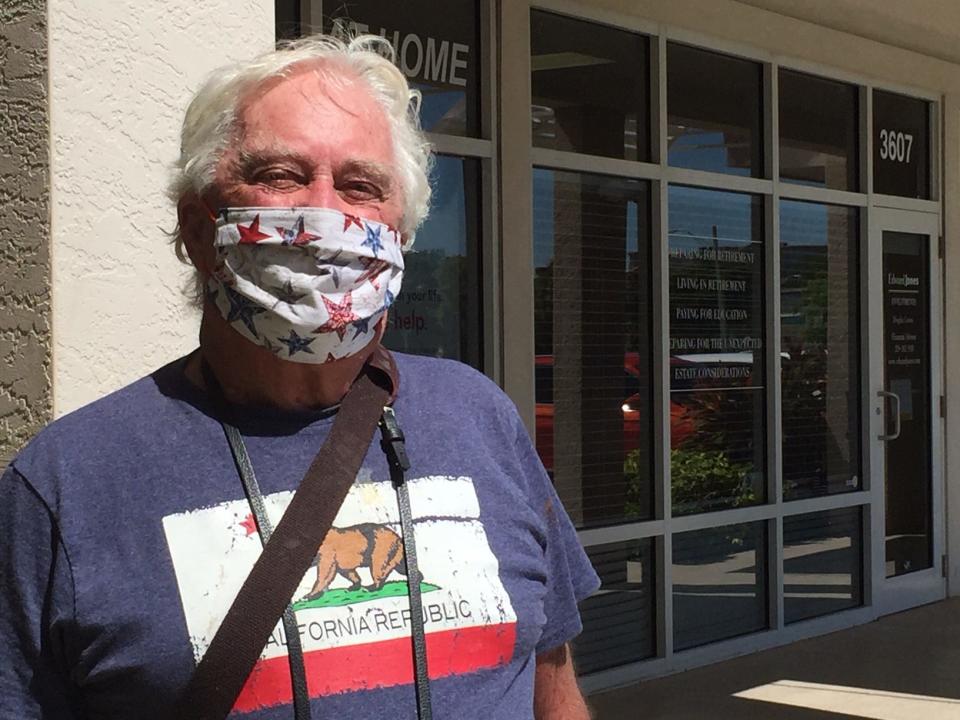
Alan Green, 83, of Naples, Florida, took a cruise through the Panama Canal in March, ending in San Diego.
“I would expect I might have come in contact with a number of people who may have been exposed” to the virus, Green said through a face mask bright with red, white and blue stars.
He hasn't had any flu-like symptoms, but several health conditions put him at increased risk if he gets the virus.
Green figured he had at least a 50-50 chance of testing positive for coronavirus antibodies, which is why he showed up at a Quest Diagnostics lab last week. If he tested positive, he hoped to return to a more normal routine: seeing his girlfriend and perhaps eating at restaurants with outdoor tables and distance between customers.
His dreams have been deferred. He tested negative.
'More information is better than nothing'
Employees of Snap Logistics, a Milwaukee trucking company, were anxious about contracting the coronavirus because they regularly interact with other people on the job.
Nate Rupp, the company's owner, paid $3,000 for about 30 employees and contractors to get antibody tests at work. ARCpoint Labs, a drug testing company with a location near Milwaukee, came out to perform the 15-minute, rapid-result finger-prick tests.
ARCpoint advertises the tests as a tool in “your staff’s return to work or safe interaction with others.” The company acknowledges on its website that the exam has not been reviewed by the FDA and should not be used “as the sole basis to diagnose or exclude” an infection.
In April, a U.S. House oversight subcommittee sent ARCpoint a letter raising concerns about the tests. The letter said the company’s protocol for interpreting test results appeared to overstate scientific knowledge by encouraging test takers with one type of antibody to disregard social distancing procedures.
ARCpoint wrote back, saying the tests complied with FDA regulations – which until Monday simply required antibody test manufacturers to validate the tests on their own.
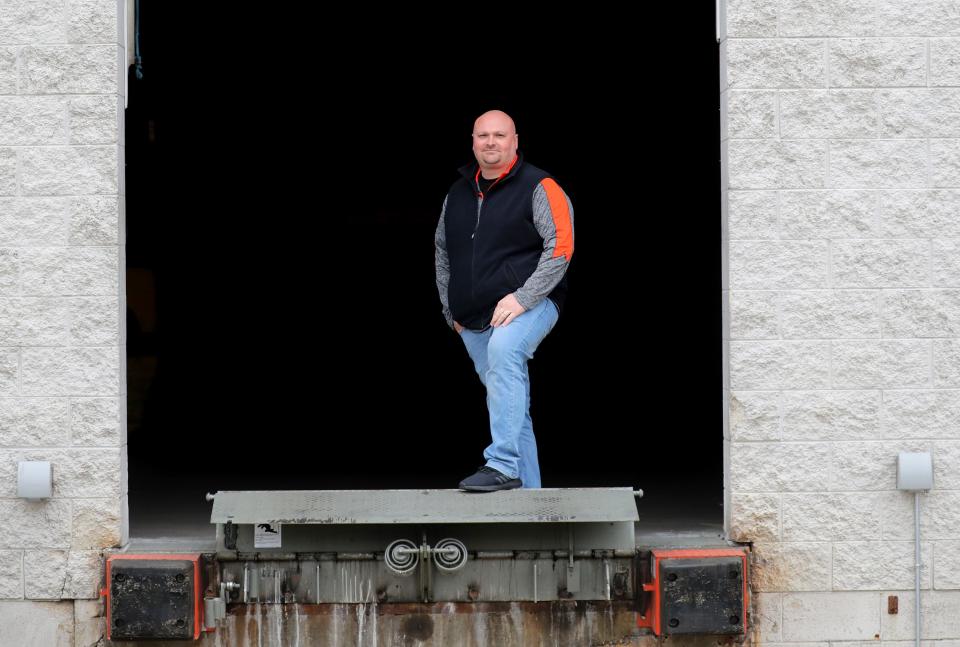
None of Rupp’s drivers or employees tested positive for the coronavirus antibodies. “I’m not sure what we would have done if we had positive tests,” Rupp said. "I think it calmed them down a bit.”
He's mindful of the limitations of the tests. "I did it for peace of mind, with the understanding we’ll still need to keep social distancing and wearing (personal protection equipment) and, of course, washing hands.”
More than 100 employees for the Oneida County Sheriff’s Office in northern Wisconsin took ARCpoint antibody tests last week. Capt. Tyler Young said the agency paid for the tests fully aware they're imperfect.
Young said the department had planned to ask for volunteers to work in the county jail if they tested positive because they would have less risk for contracting the coronavirus. But no employees indicated they had.
For him, the quick test result came with mixed emotions.
“It’s a bit of a relief because it maybe confirms what we’ve been doing to keep safe is working,” Young said. “It’s not perfect, but more information is better than nothing.”
Some tests don't measure up to manufacturers' claims
Some health care experts aren't as accepting.
“This is as close to the Wild West as I've ever seen in terms of laboratory tests," said Osterholm, the director of the infectious disease research center in Minnesota. “Even the good tests will likely give results that are virtually meaningless.”
The Minnesota-headquartered Mayo Clinic validated eight antibody tests before selecting what it considered to be the two best performers for its own use. Elitza Theel, director of the Mayo Clinic Infectious Diseases Serology Laboratory, said its analysis showed some of the tests weren't as accurate as companies asserted to the FDA.
One test had a false positive rate of 15%. “That’s pretty poor,” she said. “We would be telling 15 people out of 100 that they had had COVID-19 when they didn’t.”
Theel said Mayo Clinic policy doesn’t allow her to identify the makers of the tests now. She expects to publish a scientific journal article about the assessments soon.
FIND, the Geneva-based nonprofit group, is working with several partners, including the World Health Organization, to validate hundreds of COVID-19 antibody tests submitted by manufacturers.
External data posted on FIND's website shows sensitivity rates of 6% and 4.3% for rapid antibody tests made by two manufacturers in China. The data shows a specificity rate of 36.4% for a rapid antibody test made by a different Chinese manufacturer.
Tests with such rates "are more likely to give you the wrong result," Baird said.
The external data of 40 COVID-19 antibody tests showed specificity rates close to 100% for several manufacturers' tests. That means virtually no false positives.
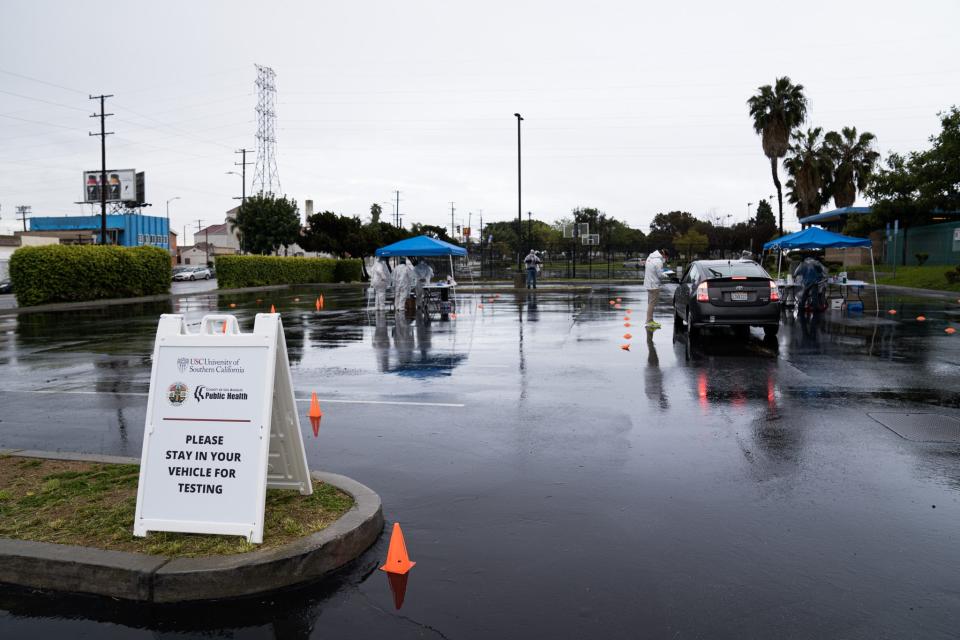
Cassandra Kelly-Cirino, an infectious disease scientist and director of emerging threats at FIND, explained why manufacturers' claims often don’t hold up in independent testing.
For one thing, results vary depending on how recently the infection occurred. The tests assessed by FIND are abysmal in detecting antibodies formed in the first few days after someone has been infected with the coronavirus, Kelly-Cirino said.
For anything less than eight days, the tests "have very, very poor performance,” she said.
Some of the antibodies the body produces to fight COVID-19 dissipate quickly. “After about the 14-day mark, what we're seeing as well is a tail-off, where (the tests) don't work as well,” she said.
Another problem is that manufacturers often use small samples to validate their tests, Kelly-Cirino said. Abbott and Ortho Diagnostics, whose tests were authorized for emergency use by the FDA, didn’t use any samples from people whose immune systems were compromised, she said.
Older people and those with health conditions don't produce as many antibodies, so they're harder to detect, she said. If test manufacturers "decided to exclude all patients that are falling in that area, that's because it likely would have brought their performance levels down," Kelly-Cirino said.
That's a problem, she said, because those people especially need accurate tests.
Testing perfection wasn't necessarily the top item on Desiree Callahan's agenda when the information technologist drove her GMC Denali up to an antibody testing site in San Diego last month.
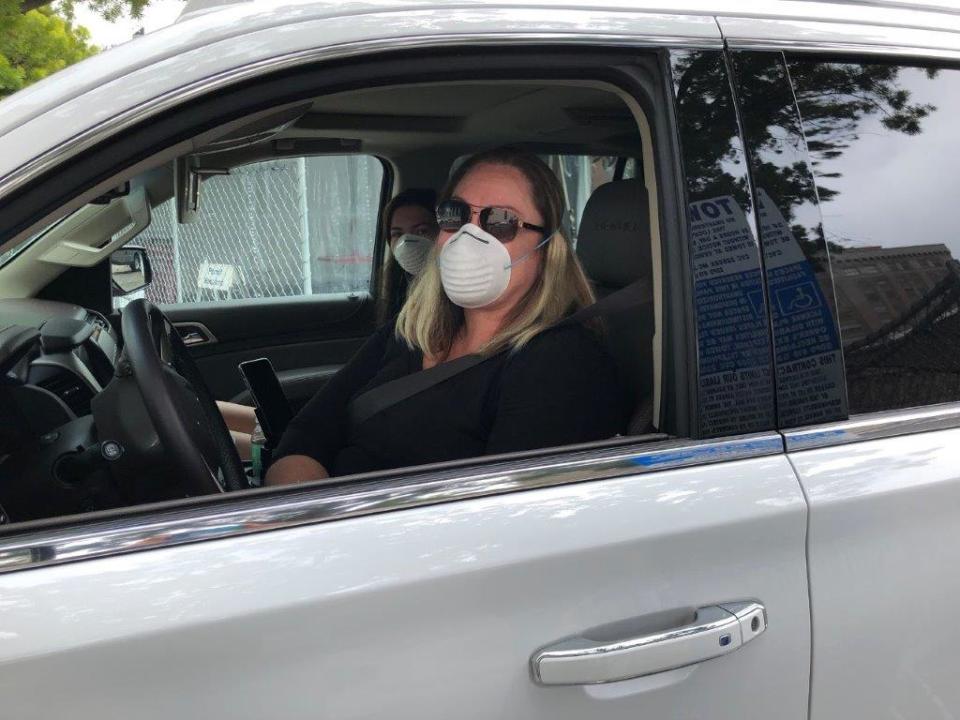
Callahan, 55, said she had a flu-like illness in late 2019 and was “just curious” to know whether she’d had a bout with COVID-19.
Matt Collins, a spokesman for COVID Clinic, the company that arranged the drive-thru testing, said the tests “help us to understand an accurate picture of the virus by telling us how many people have been or are currently affected.”
Such antibody surveys are typically done by researchers who strive to test a representative sample of the population.
Callahan paid $125 for her test. She said she wanted to believe the procedure was 100% accurate. "I'm not uncomfortable. It is what it is," she said.
Days later, she learned the test showed she never had COVID-19.
"Whether I tested positive or negative for the antibodies," she said, "I would still take precautions when in public, as I feel we just do not have enough information surrounding this virus that has so quickly devastated our nation."
Contributing: Ryan Mills, Nick Penzenstadler, Dennis Wagner and Ken Alltucker
This article originally appeared on USA TODAY: Coronavirus antibody testing doesn't provide answers on immunity

